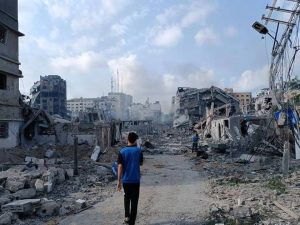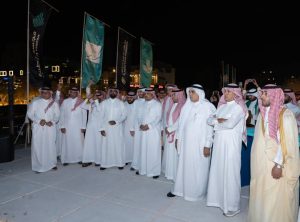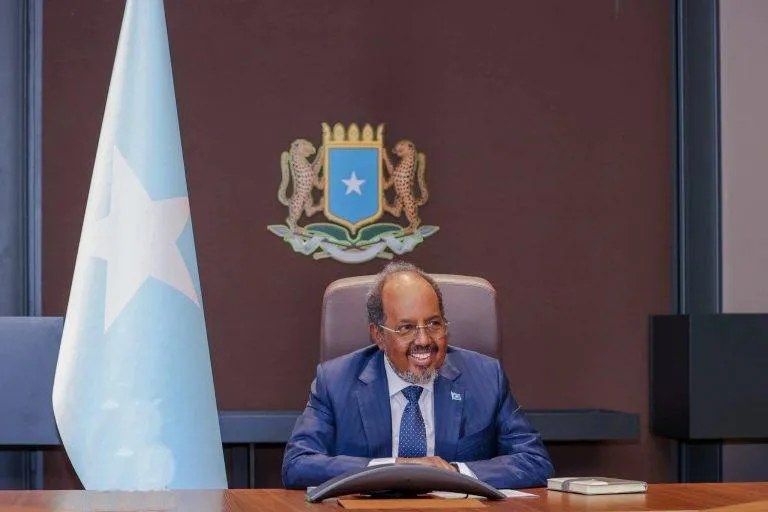A new development has emerged in Somalia’s political scene following an agreement signed between the federal government and former officials who split from the opposition ‘Forum for Salvation’ to proceed with the direct elections scheduled for 2026. This agreement includes political consensus on the upcoming phase and is seen by a Somali affairs expert as a prelude to political transformations, though challenges remain such as security conditions and funding for voting across all states. The opposition forum is expected to remain a political player despite splits.
The debate over the upcoming direct elections in Somalia in 2026 has intensified after 57 years since the last direct vote in 1968, replacing the indirect elections of 2000 which relied heavily on clan-based quotas amid coups and civil wars.
Former Somali Prime Minister Omar Abdirashid and former parliamentary speakers Sharif Hassan Sheikh Adam and Mohamed Mursal Sheikh Abdirahman (deputy head of the Forum for Salvation), along with former Information Minister and forum spokesperson Tahir Mahmoud Jili, announced their withdrawal from the opposition Forum for Salvation to establish political parties in preparation for next year’s elections.
These figures reached agreements with the federal government on electing the federal parliament for the presidency, state councils for regional governments, and adopting the 2024 election law for direct voting, according to a joint statement.
The agreement also includes participation of all parties, majority and opposition, in the direct election process for regional councils, state councils, and the two federal houses, with the Somali president having the authority to appoint the federal prime minister, subject to parliamentary approval and possible vote of no confidence.
Political analyst Abdulwali Jama Buri believes the agreement may open the door to a new political shift, as it is based on adopting the 2024 election law, indicating that political forces are realizing the importance of consensus on the rules over contesting results. He expects some opposition forces to move from pressure and escalation to institutional participation.
However, the biggest challenges lie not in the agreement’s provisions but in the political, security, and logistical realities, including security conditions, funding, and acceptance by traditional elites such as clan elders and militia leaders of reducing their role in selecting deputies.
Buri views the agreement as a positive step toward direct elections but warns it does not guarantee a crisis-free process, expecting challenges in implementation and debates over voting mechanisms and electoral districting.
This agreement follows the split of the opposition Forum for Salvation into two factions: one including the aforementioned figures agreeing with the government on elections, and another led by former president Sharif Sheikh Ahmed and former prime ministers Hassan Ali Khaire and Mohamed Hussein Roble rejecting the government’s election program.
Prior to this split, Somali Defense Minister Ahmed Maalim Fiqi warned forum leaders against forming armed forces or carrying weapons, stating the government would take strict measures if they did so.
Two days before this warning, Somali President Hassan Sheikh Mohamud said the opposition, especially the Forum for Salvation, is divided and lacks a unified political agenda or vision for dealing with the federal government, insisting on holding the one-person-one-vote elections scheduled for next year.
Tensions between the president and the opposition escalated after Mohamud founded the Justice and Solidarity Party on May 13 and named himself its candidate for the upcoming direct elections, prompting 15 prominent Somali political figures to call for urgent consultations to save the country.
Buri concludes that recent splits within the forum and the new election agreement may leave the forum with two choices: either return to dialogue to prove it is a partner in national consensus or face further fragmentation if splits continue and its leaders join government agreements. He expects part of the forum to remain a political interlocutor but with less influence.
He sums up that the agreement opens a door of hope for a new political phase but notes the path remains full of obstacles requiring broader political consensus, security guarantees, and practical commitment.













Recommended for you
Talib Al-Rifai Chronicles Kuwaiti Art Heritage in "Doukhi.. Tasaseem Al-Saba"
Exhibition City Completes About 80% of Preparations for the Damascus International Fair Launch
Unified Admission Applications Start Tuesday with 640 Students to be Accepted in Medicine
Egypt Post: We Have Over 10 Million Customers in Savings Accounts and Offer Daily, Monthly, and Annual Returns
His Highness Sheikh Isa bin Salman bin Hamad Al Khalifa Receives the United States Ambassador to the Kingdom of Bahrain
Al-Jaghbeer: The Industrial Sector Leads Economic Growth